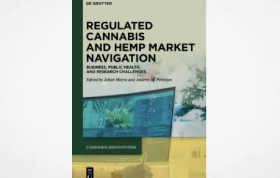The UK and EU cannabidiol (CBD) industry has experienced exponential growth in recent years, with consumers seeking natural remedies for a range of ailments. However, emerging barriers present tough challenges to businesses operating in this sector. In this blog post, we will delve into these challenges and share potential solutions.
Regulatory barriers
A prominent barrier hindering CBD businesses in Europe is regulation. The regulatory landscape for cannabidiol (CBD) in the UK and EU is complex and in a state of flux. Moreover, the rules for CBD vary slightly from market to market, which can make it difficult for businesses to build a pipeline of products without clear and consistent guidelines. A harmonized approach to regulation is needed. In the UK, current CBD laws are out of date and not fit for purpose. Efforts by the industry and government are ongoing to develop a framework but it’ll take a few years to update the laws. Governments must provide clear regulatory guidelines to CBD businesses to allow them to build a pipeline of products.
Scientific barriers
Aside from the regulatory barriers, the message from the authorities is clear: clinical data on the safety of CBD in key toxicological areas is lacking. This lack of safety data is holding back the marketing of CBD novel foods including supplements in Europe. Novel food regulation applies to CBD food and drink in the UK and EU. The authority for Novel Food, the European Food Safety Authority (EFSA), has highlighted a number of areas where more data is needed in order to approve CBD novel food applications. Clinical trials are currently underway to address this issue, with results expected in Q1 2024, but more are needed. Until then, the lack of clinical data remains a significant obstacle for CBD businesses looking to bring novel food products to market.
Manufacturing and Quality Control
The absence of official CBD manufacturing standards has created a “wild west” scenario, with a lack of consistency in production quality across the industry. This situation may be damaging the public perception of CBD. Insufficient resources have also hampered the ability of enforcement authorities to thoroughly survey the market, exacerbating the problem. To mitigate these issues a concerted effort is needed to establish and enforce clear manufacturing standards across the industry to improve product quality and build consumer confidence. Standardization in manufacturing processes will ensure consistency and quality across all CBD products, while adherence to strict guidelines will help prevent unintentional non-compliance and reduce the risk of negative consequences. CBD businesses must invest in quality control measures to ensure the products they are manufacturing meet industry standards, building consumer trust and promoting a positive reputation for the industry. The public must be confident that what they are buying is of high quality.
Marketing Barriers
In addition to the challenges presented by manufacturing and quality control, CBD businesses also face a complex marketing landscape. Due to advertising restrictions on social media channels, CBD businesses face a challenging landscape when it comes to promoting their products. Two of the biggest players in digital advertising, Facebook and Google, do not allow CBD product advertising so businesses must seek alternative options when it comes to raising brand awareness. A number of options are open to CBD businesses including organic traffic through SEO, trade fairs, exhibitions, email and content marketing. Additionally, businesses should invest in building their brand reputation through thought leadership, education, and community engagement. By becoming a trusted authority in the CBD space, businesses can differentiate themselves from competitors and build a loyal customer base.
Financial barriers
Finally, the CBD industry faces challenges with payment processing. Due to CBD’s association with controlled substances including THC and cannabis, major payment merchants like Shopify are hesitant to offer merchant services to CBD businesses. As a result, companies must instead use what are called ‘high-risk’ payment providers for their online e-commerce transactions. These are the same payment merchants used by forex web businesses. Because they are higher risk they tend to charge higher transaction fees. To address this issue, CBD businesses should work with industry associations and lobbying groups to push for more accommodating payment processing solutions. This may involve engaging with lawmakers and regulatory bodies to develop clearer guidelines and regulations around payment processing for the CBD industry.
In conclusion, the CBD industry faces a numbers of barriers spanning law, scientific, quality control, marketing and finance. To unlock the potential benefits of CBD, lawmakers, regulators, and industry stakeholders must work together to overcome these obstacles. It is crucial to create clear guidelines for businesses to follow, ensure quality control and standardization of products, and develop a harmonized approach to regulation across the EU. With collaboration, we can overcome these challenges and pave the way for a thriving CBD industry.

















